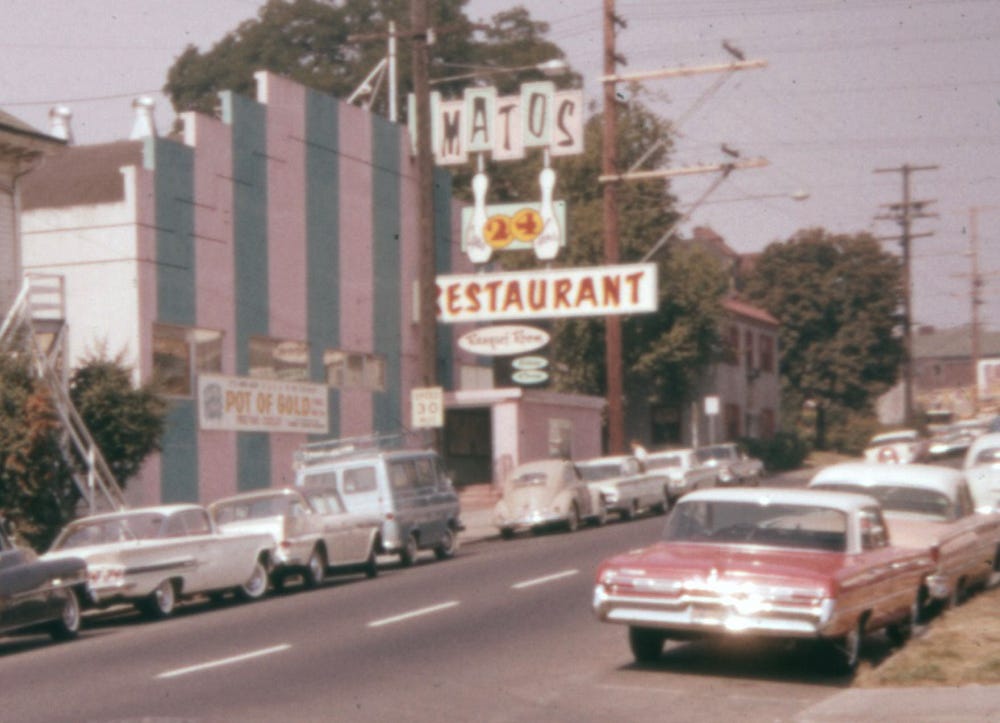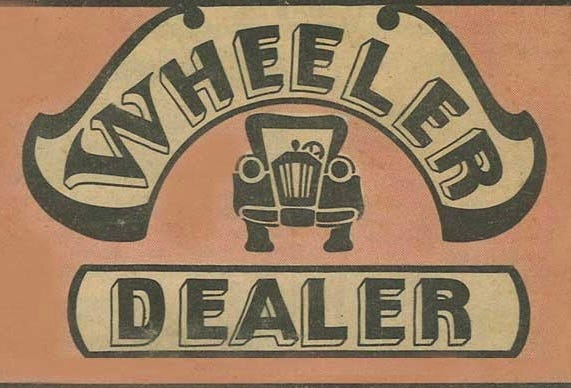WHEELER DEALER: Chapter 4
“She came up to buy some speed,” says Roger. That’s how they met. “Hightop boots, black leather outfit, dark hair, beautiful. Music on the radio. ‘Time Has Come Today’ by the Chambers Brothers. She said she liked it, I said I do too. Let’s go to the record store and get it.”
Actually, it’s a pretty crappy record. Psychedelic soul with cow bells, no less. And if you don’t believe me, check it out on Youtube. Here’s the refrain:
I’ve been crushed by the tumbling tide
And my soul has been psychedelicized
No kidding. But who are we to stand in the way of young love?
“Three days later,” he says “Sandy and I were together.”
And just a week or so after that, Roger would go before Judge Dean Bryson to be tried once again on that three-joint marijuana case. Bryson finds him guilty again but sentences him, much more reasonably this time, to two years probation. Life is good, or it oughta be any anyway.
Roger and Sandy are living at the Waverly Surf, a very 60s-looking apartment complex on the Willamette, just across the river from Dunthorpe. It’s a summer day and they’re sitting out by the pool when his probation officer comes by.
The probation officer tells Roger it’s obvious to him he’s living beyond his means. In fact he has no visible means of suppport.
Roger, who is stoned of course, tells him to shove it. Which is the other thing to consider here: Roger has started using his own products (that’s plural), and it’s beginning to affect his judgment. What’s more, the probation officer says, he cannot condone lewd cohabitation.
So Roger and Sandy do the logical thing and get married. She is nineteen and he is twenty-one.
Since of course that doesn’t really cut much ice on the no-visible-means-of-support front, Roger’s parole is revoked – which means he must now serve two years in prison. However he’s still out on bail, and his lawyer, Oscar Howlett, says not to worry because there are excellent grounds for an appeal on this second conviction.
So far so good, except for the problems Roger is currently having with this guy Doug Finney who he’s been doing business with out of Amato’s. For more than a month now Finney has been owing Roger $1000 for some acid Roger fronted him, and in the drug business that is a definite no-no. The drug business works on trust or it doesn’t work at all.
So Roger is already pissed when Finney comes by with some STP, the longer-lasting version of LSD, and he not only wants Roger to move it for him but wants the money up front.
“Sonuvabitch,” says Roger. “So I snatched him right then and there. Pistol whipped him pretty good to start with. I knew he had dope hidden in his house, so we got him to drive us over there. His old lady gave it up right away. Then we kept him there for a full day. Just wanted to teach him a lesson.”
In fact, Roger says, he was actually planning to return the dope to Finney the following evening after he and his crew got back from seeing the movie “Bonnie and Clyde” at the Avalon. He and Sandy were living on Belmont now so they were within walking distance of the theater.
But as they got closer and closer, Roger couldn’t help feeling that something was up. Everything was just too quiet. And then he sees em. First one, then another. Finney has called the cops, for crissakes!
Roger dives over a hedge and gets away, but they nab Sandy and Roger’s friend and longtime crime partner Donnie Crips. All three are charged with robbery, assault and kidnapping. Sandy and Crips are released the next day, and the authorities are still looking for Roger to arrest him when the three of them take off for sunny California.
Nine hundred miles later, outside the southern California town of Newhall, they pull over to the side of the road to sleep. When a highway patrol officer spots a pistol lying on the back seat, and upon further inspection a small cache of drugs inside the car, the three of them are hauled in.
Sandy’s mother comes down to retrieve her. Crips makes a deal on the pistol and is released. And Roger, idiot that he was, refuses to waive extradition and is sent to the Los Angeles city jail, which was an over-crowded, racially-charged jungle.
“It was a hell hole, man. I mean I picked up a stabbing beef there with a spoon, a sharpened spoon, and they didn’t even charge me on it.” After three months of this, Roger agrees to be sent back to Portland where he is locked up in Rocky Butte, the fortress-like jail that used to stand on a hill east of town, where I205 is now.
Roger has been there twice before. Once overnight, on a teen-age drunk-and-disorderly charge, and then again, for two weeks before he could get bailed out on the Giani marijuana bust. It was a gloomy, almost medieval-looking place, but Roger was so happy to see it, he says, he had tears in his eyes. Someone had even stolen his street shoes the last night in LA.
Shortly before Christmas 1968, Roger, and of course his trusty attorney Howlett, are ushered into the presence of an assistant deputy DA. Finley is still maintaining that Roger assaulted and held him captive. Roger, of course, says that Finley is just making it all up because he doesn’t want to pay him the $1000 he owes him for the LSD.
In the end, the DA, apparently unwilling to spend any more time on a spat between two drug dealers that hasn’t resulted in any serious harm to either of them, drops the charges. Roger is free to go.
And of course he heads straight back to Amato’s where’s he’s introduced to a tall, hippie-like character, Bruce Tucker, who has just moved up from San Francisco and apparently has good meth connections. After three months in the LA jail, Roger is flat busted. His competitors have already scarfed up his once-thriving Portland business and he has nothing but $50 in his pocket, which he got from his bail bondsman.
“So I tell Tucker ‘Here’s $50. You give me an ounce of speed and I’ll be back within twenty-four hours to pay you back and buy a couple more.’ I went out and in the next three or four days, you know, I bought five or six ounces from him.” Within a week he’s moving a couple of ounces a day.
As Roger quickly realizes, Tucker is just the front man for a small meth group that’s just been hounded out of San Francisco. And for all their expertise – at least two of them are former Berkeley grad students who were probably the fathers of the West Coast meth business – they don’t know anybody in town, or for that matter, that much about selling.
So after a couple weeks Roger tells Tucker he wants an exclusive on their product. Tucker checks with his principals, who are apparently hiding out somewhere on the Coast, and they pass back the word that it’s fine with them.
Not even a month later, though, it comes to Roger’s attention that they’re going behind his back and selling to a competitor. So Roger goes over to Tucker’s place and tells him – very politely, he says – that his colleagues have put his life in danger with their double-cross. His running buddy John Berenson plays the heavy.
Tucker immediately sees Roger’s point and agrees to ride with Roger and Berenson to the Coast, where he will introduce them to his people.
“So we drive down to Lincoln City and he points the house out. John goes around the back end of the place. I can peek in the window and see this guy, Leonard Lee or whatever his name was. He went by several different names. He was a certified organic chemist. Actually looked like an engineer or something. Short hair, not wearing hippie clothes.
“He’s sitting there in this chair watching TV. Well, I had this sawed-off shotgun with me. I kick the front door in, run in and hit him with the butt of shotgun right in the chest. It knocks him over and he’s laying on the ground. I put the shotgun right on his head there, and the first thing out of his mouth is: ‘Say, I was just going to call you.’”
It would be the beginning, if not exactly of a beautiful friendship, at least a highly productive business arrangement.





